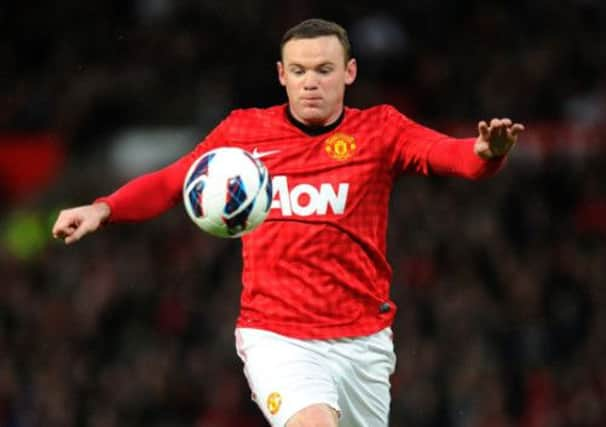Aidan Smith: Renewing old Scotland-England rivalry


I was imagining the box-shaped Englishman beside himself with anticipation, nerves and dread. I could picture him stomping around his favourite shopping mall, muttering to his baby son in the designer buggy: “We can’t let them win, Kai, not at our bit – otherwise I won’t hear the end of it from the Jocks all season long.” And finally I could see him on the Wembley pitch, belting out the national anthem, veins bulging, and then his rug catching fire – all because of the threat posed by Grant Hanley and Liam Bridcutt.
It was a nice dream while it lasted, the truth being more prosaic. Hodgson’s concern is that Wazza will take his frustration at not getting his move to Chelsea into Wednesday’s game, and react badly to the slightest provocation. I’m sure we can all remember a time when Us vs the Auld Enemy was the biggest provocation on football’s fixture list, the entire sporting calendar, indeed this thing called life.
Advertisement
Hide AdAdvertisement
Hide AdLook again at almighty tussles from 40-odd years ago and gasp at the number of times a player, usually a Scot, clatters into a team-mate, such is his desperate desire to get to the ball before an Englisman. Look at the number of times the ball squirts at speed in a zany direction after a hideous coming together of peely-wally Scottish hurdie and Admiral-clad English calf (in 1971 it squirted straight to goalscorer Martin Chivers and, yes, he was pre-Admiral but you know what I mean). And look, in gobsmacking awe, at Alfie Conn’s hair in ’75 and ask yourself: Has there ever been a more provocative barnet?
Alfie, right, with his gringo moustache, resembled an extra from a searing Peter McDougall Play for Today from that bad old, great old time. Typically in those dramas, a character would say he was nipping out for a pan loaf and disappear for the best part of a week. This was the impact on Scottish households of the biannual Wembley invasion. Also typically, the hardest of the hard men would only have to look up from under his curtains of hair for some poor sap to wet his breeks. Unfortunately England didn’t wet theirs in ’75, thumping us 5-1.
Look at Gerry Francis’s delight at scoring two that day, his massive sideys bristling with yeoman pride. Look in other Wembley encounters at Alan Clitheroe (sorry, Ball) who can’t wipe the smug grin from his face as he tags along with his much taller team-mates for the celebratory trot back to halfway and, to be fair, isn’t trying too hard. And look at Emlyn Hughes, on the bench but arms aloft, cheering madly, because he would have been returning to a club where there were Scots to taunt.
Rooney doesn’t play with that many at Man Utd and would encounter even fewer at Chelsea were he to get his move. But, four decades ago, English clubs adhered to a strict code. “Every good team needs two Scots in it,” said Bill Shankly, although he did add: “Three and you’ll get trouble.” In ’69 – the first Scotland-England game I properly remember – Eddie Gray of Leeds Utd shimmied and crossed delightfully for Colin Stein to head home. Pity about the four England got.
Two went to Martin Peters, the ghost of the far post who everyone said was ahead of his time, so it was no surprise he scored in England’s Wembley wins in ’71 and ’73. Around this time, an orange ball was used. Looking for excuses for Scotland defeats, you might wonder if the team got confused by the lack of snow. Enterprisingly, in ’73, the SFA arranged another game for February when there was snow. This one – at Hampden to mark the association’s centenary – finished Scotland 0, England 5.
A very notable year, ’73. In terms of goalkeeping performances in the fixture, Peter Shilton’s save from Kenny Dalglish was the pearl among the dross. And, in ’73, suddenly there were Lions Rampant all around. As Shanks almost said: “Every good Wembley international needs a presence of Scots but 75,000 of them and you’ve got trouble.” Welcome back, ye olde rivalry, on the occasion of the FA’s 150th birthday.
Let’s see if we can spoil their party.